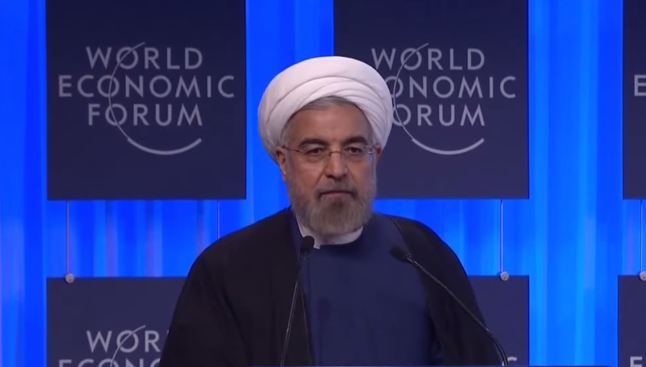Breaking
Iran leader: Nuclear progress not significant, sanctions must ‘melt away’
NEW YORK—Iran’s President said Friday that progress so far in nuclear talks with six major powers “has not been significant,” and the pace must be speeded up if the Nov. 24 deadline for a final agreement is to be reached.
Hassan Rouhani said “there have been steps forward, but they haven’t been significant.”
He spoke at a news conference on the sidelines of the U.N. General Assembly’s annual meeting of world leaders. His remarks also focused on fighting terrorism and relations with the United States.
Talks between experts from Iran and the six major powers—the U.
S., Russia, China, Britain, France and Germany—have been taking place on the sidelines of the annual meeting of world leaders. But France’s Foreign Minister Laurent Fabius said an expected meeting of foreign ministers was called off Friday because of a lack of “significant advances.”
The negotiations have been stalled for months over Iran’s opposition to sharply reducing the size and output of centrifuges that can enrich uranium both to levels needed for reactor fuel or the core of nuclear warheads. Iran says its enrichment program is only for peaceful purposes, but the United States fears it could be used to make a bomb. Iran says any deal must put an end to the Western sanctions that have crippled the Iranian economy.
Despite the lack of progress, Rouhani said Iran believes “the serious (political) will does exist” to reach an agreement.
“Every side must show courage, the will, the strength … along with the appropriate needed action and the needed flexibility,” he said. “If we can do this, we will reach our objective.”
Rouhani said Iran has made clear that it has the needed flexibility.
“Now it’s up to the counterparts and interlocutors to show the same level of flexibility,” he said. “And the ball is in the interlocutors’ court.”
Rouhani said Iran will never accept any agreement that requires it to stop enriching uranium for peaceful purposes to produce nuclear energy, and all sanctions imposed by the U.S., the European Union and the United Nation must “be completely melted away and deactivated.”
“We are seeking a win-win deal, an agreement … which benefits both sides,” Rouhani said.
For Iran, he said, it must “specify and recognize the obvious rights of the people of Iran and set forth the conditions under which Iran will continue to gain the trust and eliminate doubts of other countries.”
“Time is short,” he said. “Progress that has been witnessed in the last few days has been extremely slow. We must have a more fast pace to move forward.”
Rouhani reiterated that a nuclear agreement will not only benefit Iran and the six powers “but it will be great for the stability of the region and the entire world … (and) will be the beginning of a path toward collaboration and co-operation.”
He said Iran has calculated “various equations to safeguard its own national interest, so it is our counterparts’ turn to revisit … the issues that they’re holding so close to the discussions.”
When asked about one of those issues—how much Iran is willing to reduce its enrichment capacity—Rouhani said it was written in the Geneva agreement that led to the current round of negotiations that “enrichment must be according to the need.” He added that “Iran only wishes to have enrichment according to its needs” under the auspices of the U.
N. nuclear watchdog.
“So the topic is not so focused as everyone has made it out to be on decreasing the capability of enrichment,” he said. “It is mostly a matter of the time period during which Iran is willing to limit its capability, and after what period they can expand upon those activities.”
If an agreement is reached, Rouhani said, “most important will be trust-building” because of the lack of trust between the two sides—and he said building trust “is a very long ladder.”






















